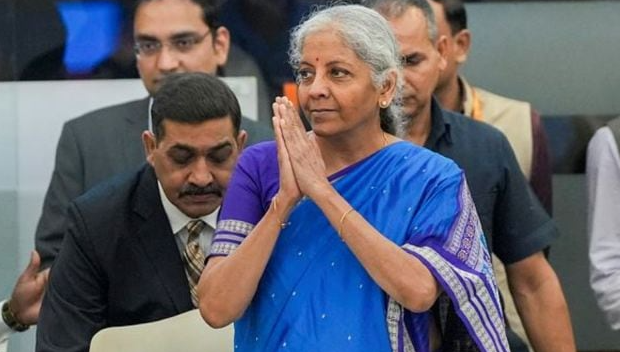Strategic Investment Insights Post-Indian Elections : Aligning Strategies with Sethurathnam Ravi

The conclusion of elections in India signals a pivotal moment for investors as they recalibrate their strategies to align with anticipated policy changes and economic shifts under the new government. This period demands vigilance and adaptability as investors closely monitor policy announcements and economic indicators to refine their investment strategies and capitalize on emerging opportunities.
Sethurathnam Ravi, founder of Ravi Rajan & Co., provides valuable insights into the continuity expected with the NDA government continuing at the center. “Prime Minister Modi’s third tenure suggests a continuation of policies framed during NDA one and two. The allocation of cabinet portfolios reflects a commitment to maintaining continuity, making vision documents like Viksit Bharat highly relevant in today’s dynamic landscape,” Ravi commented.
During NDA 2, the government focused extensively on pivotal sectors such as e-mobility, infrastructure (including rural development), ESG initiatives, Defence, and IT infrastructure. “The Indian banking sector remains robustly capitalized and under strict regulation. Interventions in cases like PMC Bank, Yes Bank, and Laxmi Vilas Bank underscore the government’s commitment to maintaining financial stability through rigorous oversight. RBI’s comprehensive supervision extends to NBFCs, ARCs, and cooperative banks,” Sethurathnam Ravi emphasized, highlighting the government’s proactive stance on economic management.
Strategic Investment Sectors to Consider:
1. Banking Stocks: Public sector banks are poised to benefit from solid capitalization, robust capital adequacy ratios, and efforts to streamline operations through mergers. The consolidation within the banking sector is expected to enhance profitability and operational resilience.
2. Insurance Sector: With the government’s initiatives to increase FDI limits in insurance and promote financial inclusion through schemes like ‘Insurance for All’ by IRDA, the insurance sector presents significant growth opportunities. Regulatory reforms aimed at facilitating the listing of insurance companies further enhance market participation and transparency.
3. Infrastructure Companies: Companies specializing in technical construction—such as tunnels, roads, airports, and ports—are set to gain from government initiatives like Gati Shakti. These initiatives aim to enhance national connectivity and infrastructure development, creating avenues for substantial investments in railways and associated services.
4. Defence: The liberalization of the defence sector opens doors for private investments, driven by initiatives to boost domestic production capabilities and technological advancements through collaborations with global entities. Defence remains a strategic sector with immense growth potential under the new policy framework.
5. IT and Software: Given the increasing prevalence of cyber threats and the growing reliance on digital platforms, investments in cybersecurity solutions and data protection technologies are crucial. The IT sector, particularly cybersecurity firms, is expected to witness heightened demand as businesses prioritize safeguarding their digital assets.
6. Building and Construction: Enhanced regulatory oversight under RERA (Real Estate Regulation and Development Act) has bolstered investor confidence in the real estate and construction sectors. Growth prospects are also promising in FMCG, agriculture, logistics, and transportation industries, driven by infrastructure development and urbanization initiatives.
7. PSU Manufacturing Companies: Heavy engineering sectors within PSU manufacturing are poised for growth, aligned with national infrastructure projects and the government’s emphasis on ‘Make in India’ initiatives. These sectors offer lucrative opportunities for investors seeking exposure to India’s industrial growth trajectory.
8. Pharmaceutical Companies: Companies with robust international distribution networks and strong research and development capabilities are attractive investment avenues. India’s prominence in the global pharmaceutical market positions these firms favorably amidst increasing healthcare demands and evolving regulatory landscapes.
Conclusion:
Investors navigating the post-election economic landscape can benefit significantly from Sethurathnam Ravi’s expert insights and strategic analysis. By aligning investments with sectors poised to benefit from government policies and initiatives, investors can capitalize on emerging opportunities and mitigate risks associated with market volatility. As India charts its course under new governance, strategic positioning in these key sectors ensures a resilient and profitable investment portfolio, contributing to long-term wealth creation and economic growth.


